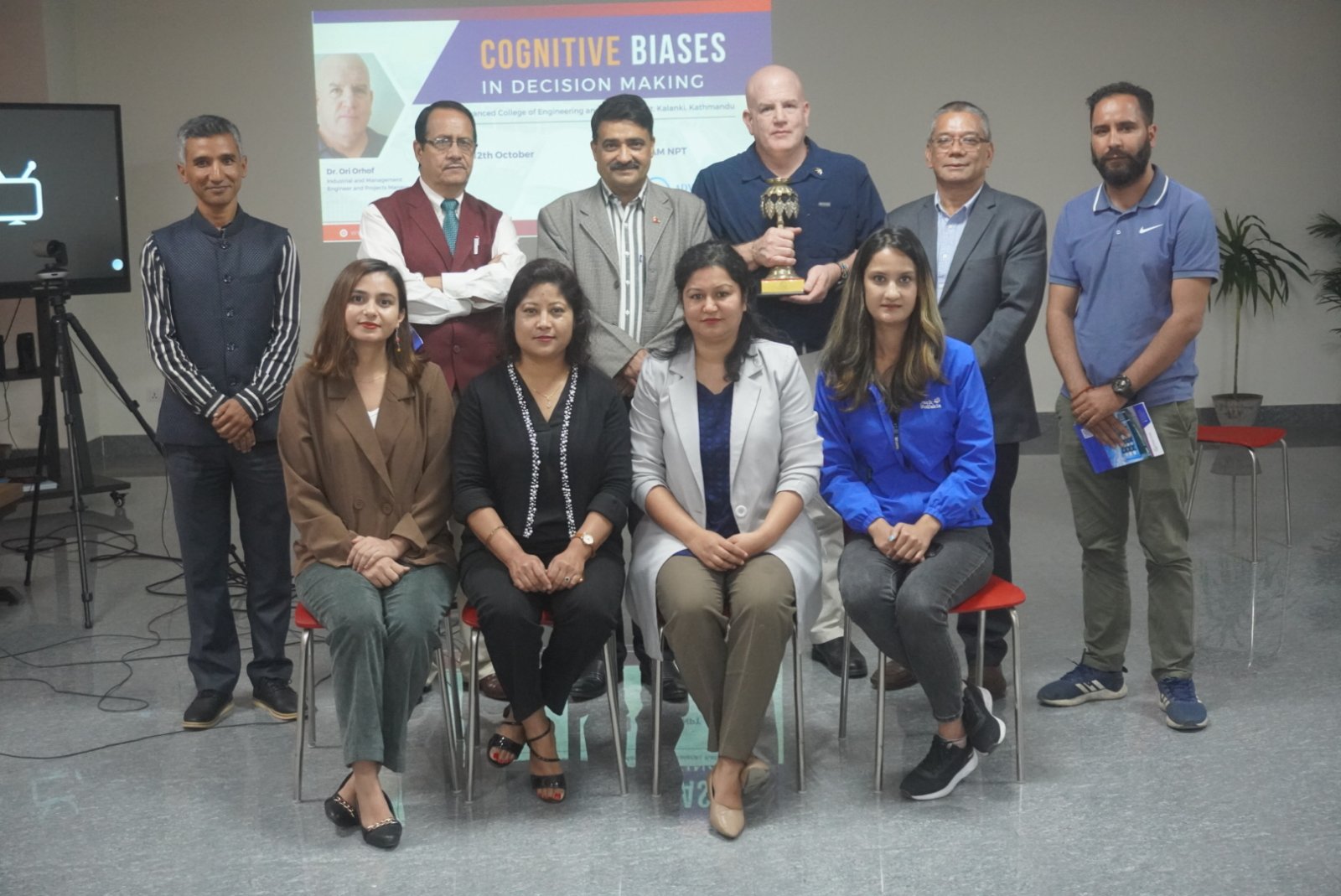
KATHMANDU: Advanced College of Engineering and Management (acem) has organized a program on ‘Cognitive Biases in Decision Making’. The program was organized in collaboration with Professor Dr. Ori Orhof, an Industrial and Management Engineer and a Project Manager from Israel amid a significant presence of Hanan Goder, ambassador of Israel to Nepal, Kanta Rijal, Ambassador of Nepal to Israel and the Chairman of acem, Ramesh Kumar Silwal.

The program also witnessed the enthusiastic participation of distinguished guests as well as prominent personalities from various academic institutions and organizations of Nepal alongside acem’s faculties and staff. The one and half hour session was conducted on the premises of acem as well as on the virtual platform Zoom.
Ambassador Goder expressed his gratitude and delight to the acem family for the successful execution of the program. He highlighted that the topic of ‘Cognitive Biases in Decision Making’ is applicable for an individual to overcome the errors caused by faulty decisions. Israeli envoy Goder affirmed that informative events of this kind help to enlighten not just the decision makers but also strengthen the bond between Nepal and Israel.
Speaking during the program, Nepali Ambassador to Israel. Kanta Rijal congratulated the organizing team for such a fruitful session. She asserted that the core of Dr. Ori’s presentation was not just instructive but also highly practical. She also mentioned her last visit to acem and appreciated the college’s initiatives and activities.
“I strongly believe that the sessions on the topics like ‘Cognitive Biases in Decision Making’ surely upgrade the standard of acem and enhance its quality as decision making is useful in the dynamic field”, Rijal stated.
Chairman of acem Ramesh Kumar Silwal provided his commendable remarks for Dr. Ori’s session and appreciated the valuable time provided by diplomats. During his speech, Chairman Silwal connected decision-making skills with leadership qualities. He elaborated that a good leader inspires followers and leads to better decisions. Moreover, Silwal also invited Dr. Ori for his next visit to Nepal.
“Dr. Ori’s sessions always leave an impact on us. I hope we will receive an opportunity to attend another enlightening session from him in the near future.” Silwal shared. He also expressed his gratification as well as cherished the flourishing ties of Nepal and Israel.
Professor Dr. Ori Orhof was the key presenter and speaker of the program. He largely focused upon the multiple categories of Cognitive Biases, highlighting primarily various ways where an individual is trapped due to their own calculation in decision making. For instance, in the Confirmation Bias, he argued why people see what they merely want to see.
According to Dr. Ori, the first step to overcoming cognitive biases is acknowledging that we have them.
During the session, Professor Dr. Ori stated that even enlightened minds might become victims of their own cognitive biases. Henceforth, an individual should adopt a gradual process of thoughts that can help balance out our own irrational tendencies. In order to shed more light on this topic, Dr. Ori added instructive videos of intellectuals of Israel like Daniel Kahneman and Amos Nathan Tversky who researched anomalies and contradictions of human behaviors, especially in decision-making. Daniel Kanheman was also awarded the Nobel Memorial Prize in Economic Sciences in 2002.
Principal of acem, Lochan Lal Amatya of acem, welcomed the speaker, special guests, and acem family with warm regards for their contribution to this program. He stated this effective topic of Cognitive Bias will undoubtedly help the participants to analyze the situation before making any faulty decisions as well as to also understand the results of human actions, especially in engineering.
Amatya shared his experience of learning Cognitive Biases in Engineering. “Hopefully, we will all learn how to make the right decisions at the right time.” Principal Amatya expressed.
Write your comment